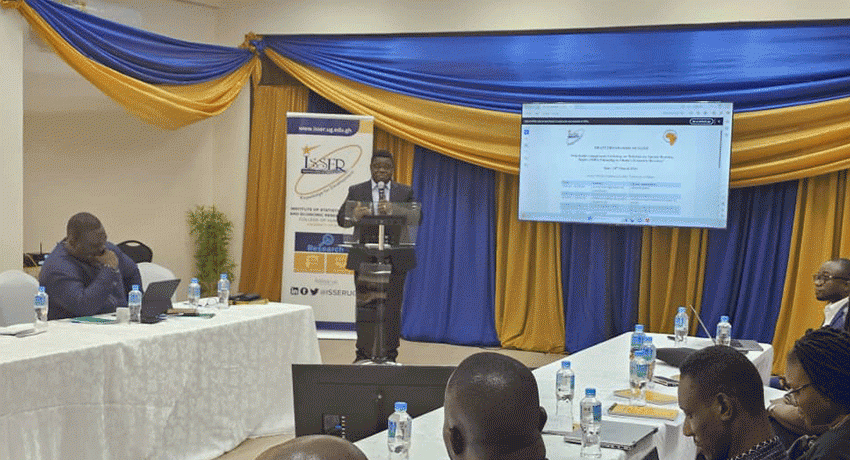Prof. Peter Quartey opens the forum, sharing the project's context and setting the stage for engaging discussions on SDRs financing reform.
In the effort to contribute to addressing Ghana's economic challenges amidst global uncertainties, the Institute of Statistical, Social and Economic Research (ISSER) co-hosted a dissemination and advocacy workshop on Special Drawing Rights (SDRs) Financing. This event was part of the Reforms for Special Drawing Rights (SDRs) Financing in Ghana’s Economic Recovery project, led by ISSER researchers with funding and technical support from the African Economic Research Consortium (AERC). The project aimed to explore how Ghana can utilize SDRs in financing economic recovery efforts and alleviating the socioeconomic impacts of recent global shocks and the country’s increasing public debt.
The one-day forum gathered stakeholders from diverse sectors including banking, regulatory financial institutions, academia, policy, and the media. Participants engaged in discussions not only on the project findings but also on broader strategies to overcome structural challenges in Ghana’s economy and build resilience. Additionally, the workshop featured a dedicated session focused on SDRs advocacy, emphasizing the commitment to promoting the SDRs financing mechanism and advocating for reforms in its utilization.
Highlights of the discussions
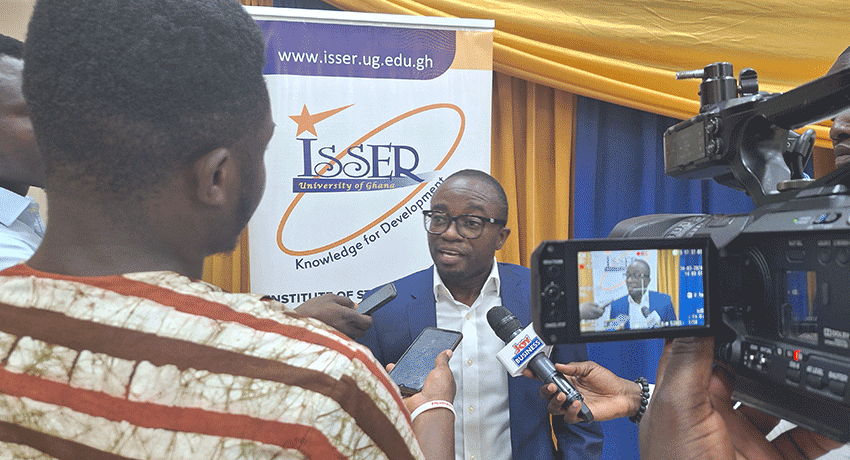
The event facilitated engagement between the research team and the media, enabling the dissemination of key messages and recommendations. Dr. Atta-Ankomah is captured here addressing questions from journalists during the event.
The workshop opened with welcome remarks from Prof. Peter Quartey, Director of ISSER and principal investigator of the project. Prof. Quartey set the stage by delving into the challenging financial landscape of many African nations, emphasizing the critical need for reform in the Special Drawing Rights (SDRs) financing architecture to better support developing countries. He shed light on the collaborative effort between AERC and ISSER, highlighting their joint mission to explore avenues for reform and leverage SDRs for economic advancement. Prof. Quartey encouraged active participation from attendees, underscoring the importance of enriching the draft research report with the perspectives of key stakeholders.
Following a brief message from AERC representative, Dr. Diana Muchai, Dr. Richmond Atta-Ankomah presented key messages from the study. His presentation underscored the multifaceted challenges faced by Ghana, including the economic impacts of the COVID-19 pandemic, the Russian-Ukraine war and climate shocks, as well as escalating external debt. He stressed the need for Ghana to access cheaper financing options such as SDRs to facilitate economic recovery and sustained growth. Dr. Atta-Ankomah proposed policy recommendations including rechanneling unused SDRs to countries in need and revising allocation frameworks to consider regional (or country) specific financial needs.
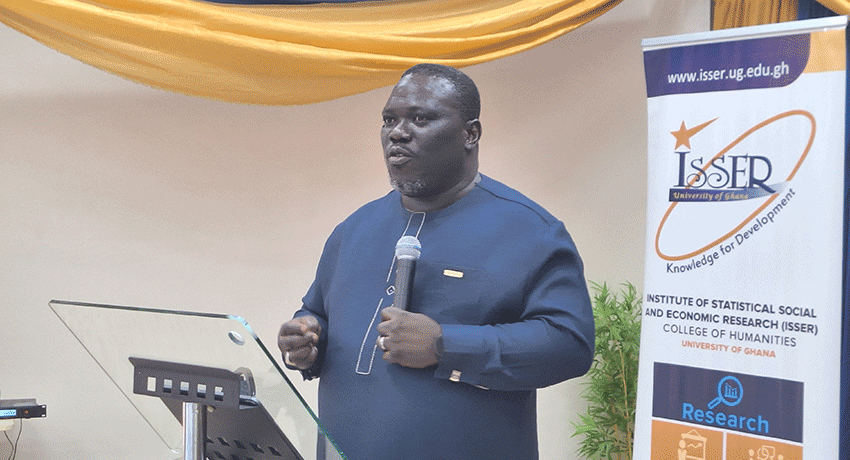
As one of the invited discussants tasked with sharing perspectives on the draft research report, Prof. Ebo Turkson from the Department of Economics at the University of Ghana expressed that the research is well-motivated and highly relevant to Ghana’s current financial landscape.
Prof. Ebo Turkson, the discussant, offered insightful perspectives on Ghana's economic recovery strategy. He emphasized the importance of targeted social interventions and need-based public expenditure prioritization to optimize the impact of available resources. Prof. Turkson also reiterated the value of seeking assistance from multilateral institutions such as the IMF as a short-term measure to restore stability and build resilience.
Additionally, Prof. Turkson highlighted the potential for Ghana and other countries in the global south to leverage new global financing options, including philanthropic financing and official development assistance from wealthy nations. He underscored the importance of diversifying financing sources to strengthen economic resilience in the face of future challenges.
Enabling advocacy for SDRs reforms
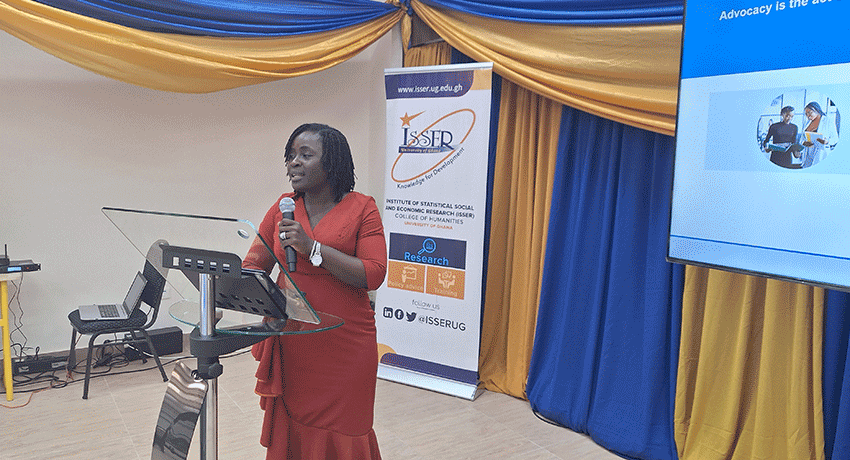
Led by Dr. Afful-Mensah, the training session on SDRs advocacy was an important component of the event, showcasing the commitment to fostering effective advocacy on the findings and SDRs financing as a whole.
In addition to facilitating evidence-led discussions on SDRs financing, the workshop featured a training session led by project team member Dr. Gloria Afful-Mensah on Advocacy for Reforms in SDR Financing. This interactive session covered topics such as the importance of advocacy, key stakeholders, advocacy strategies, and developing an advocacy action plan, equipping participants with information and tools essential for impactful for advocacy on SDRs reforms.
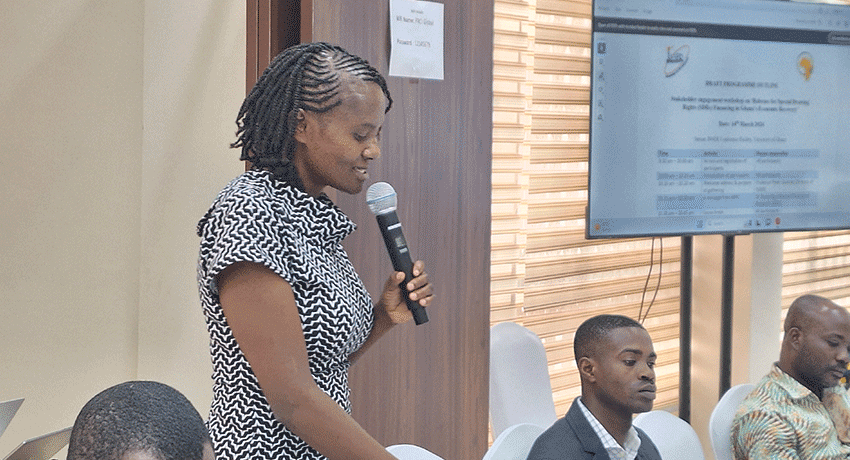
In her opening and closing remarks, Dr. Diana Muchai praised the ISSER team for their achievement as the first among the research teams spanning several countries to complete this phase of the SDRs reforms project.
In her concluding remarks, Dr. Muchai expressed enthusiasm about the workshop's outcomes and stressed the importance of disseminating research findings to relevant stakeholders. She emphasized the need for research to inform policymaking and decision-making processes, advocating for widespread dissemination of the research results through various channels including social media platforms.
Held on 14th March 2024 at ISSER, the workshop provided a valuable platform for dialogue and collaboration among stakeholders. The insights from the workshop are expected to inform policy decisions aimed at accelerating Ghana's economic recovery and fostering resilience in the post-pandemic era. Both the AERC representative and participants expressed heartfelt gratitude to ISSER for its invaluable contributions to knowledge dissemination and policy dialogue on SDRs in Ghana.
To learn more about the findings, please, read/ download
Reforms for Special Drawing Rights (SDRs) Financing in Ghana’s Economic Recovery - a policy brief by Peter Quartey, Richmond Atta-Ankomah, Gloria Afful-Mensah.
Below are selected online media reports drawing on the discussions:
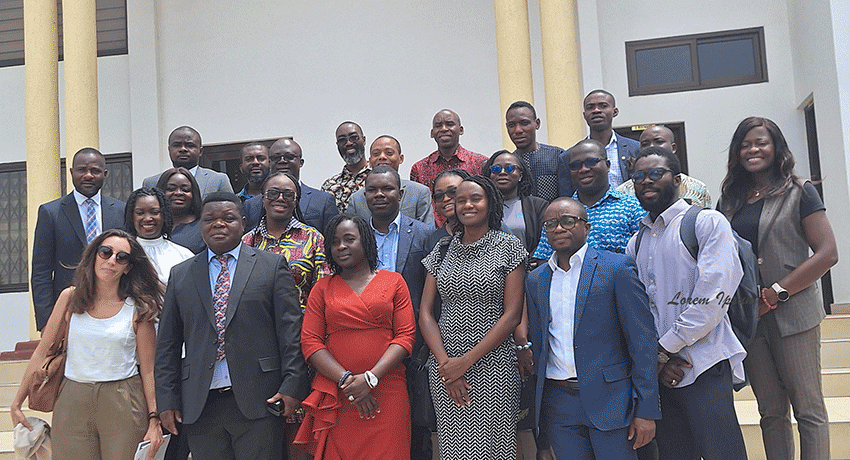
The workshop attracted a diverse array of stakeholders, including many who had participated in the inception workshop held in August 2023. This reflects ISSER's commitment to involving stakeholders at every stage of the research process.
About the project
The project was carried out as part of country case studies on Evidence to Drive Reforms for Special Drawing Rights (SDR) Financing in SSA Economic Recovery, initiated by the African Economic Research Consortium (AERC). The project received both financial and technical support from AERC; and technical support from the African Forum and Network on Debt and Development (AFRODAD). The funding was from the Bill and Melinda Gates Foundation. For media inquiries or interview requests, please reach out to Prof. Peter Quartey at pquartey@ug.edu.gh or Dr. Richmond Atta-Ankomah at rankomah@ug.edu.gh.
- Log in to post comments

